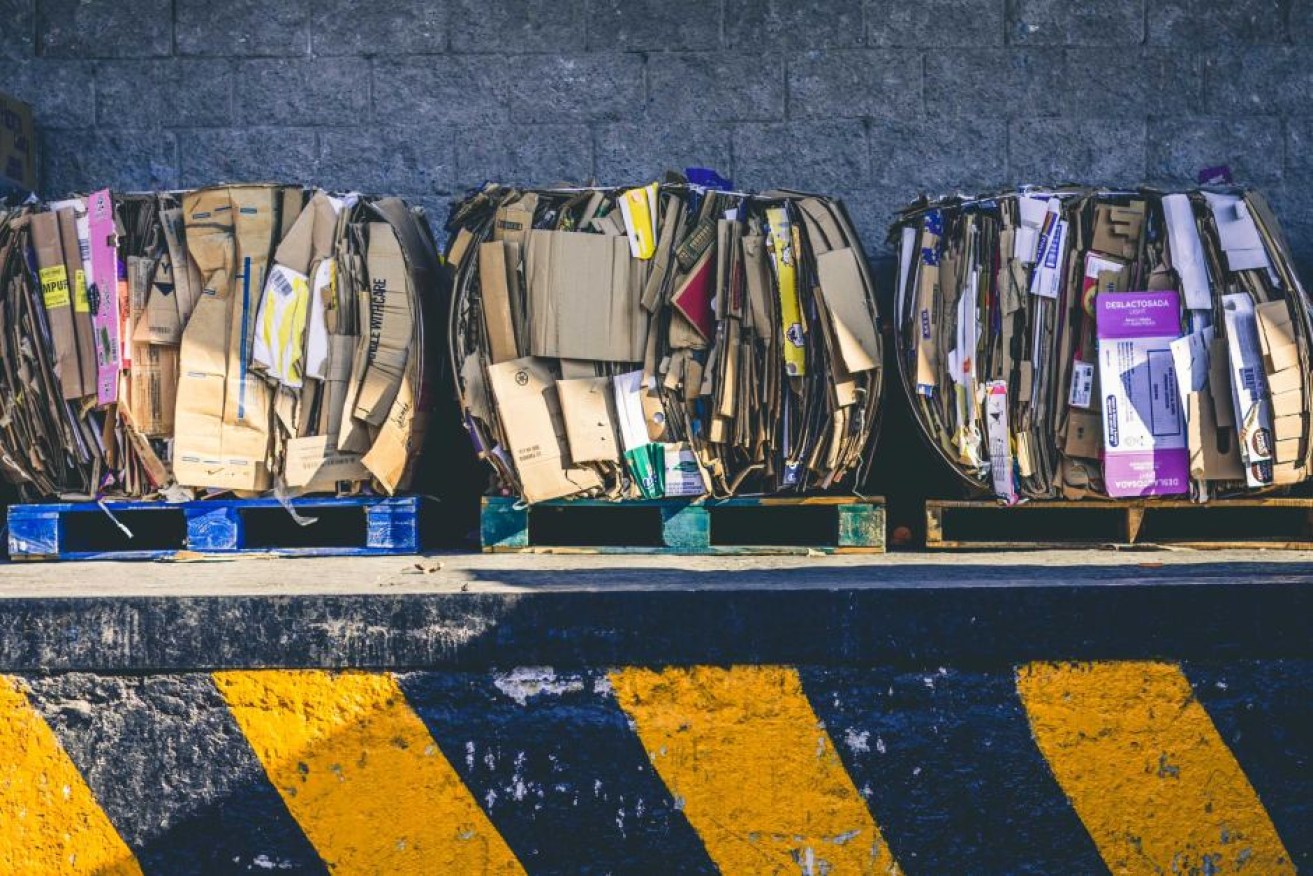The eight most common mistakes householders make with recycling

Recycling companies recommend folding your cardboard before putting it in the recycling bin. Photo: ABC
Ever since China slapped a ban on many categories of foreign waste, it’s become more important than ever for Australians to adopt good recycling habits.
Australian waste collectors now have to meet much higher standards of waste product – limiting contamination in their recyclables to 0.5 per cent – if they are hoping to export the waste to China following its crackdown.
There’s plenty of room for improvement. At the moment, Australian companies are still collecting recyclable waste with up to 18 per cent contamination.
Systems do vary between councils, so it’s always best to contact your own authority for more information.
But here are some basic rules you can adopt to ensure you are recycling effectively.
Three golden rules — clean, dry and empty

Recyclable food items should be clean and dry before going into the bin. Photo: ABC
As a general rule recyclables should be clean, dry and empty.
This means removing food scraps from containers, giving them a quick rinse if they are dirty and ensuring they don’t contain liquids.
Put simply, anything which could become rancid within a day, shouldn’t be placed in your recycling bin.
Smaller isn’t better so check the size
When it comes to recycling, bigger is always better.
Items smaller than your fist generally cannot be recycled.
This is because they tend to fall through the sorting machinery and end up in waste.
The general rule is that only items larger than your fist can be thrown in the recycling bin, otherwise its general rubbish.
Flatten your boxes – it helps you and the recycling plants

Sorting centres need to do a better job at separating waste items. Photo: ABC
Many householders flatten their cardboard boxes to make their own lives easier, because it allows them to squeeze more into their recycling bins.
But this simple process is also really helpful for your recycler.
Flattened boxes help with the sorting process and prevent machine blockages.
Whatever it says on the can, aerosols are a no-go
Recycling facilities in Western Australia have recently stopped taking personal aerosol cans because they pose a huge fire and explosion risk.
The rules vary across the country so check with your local council.
But across the country increasing numbers of waste collectors are refusing to accept aerosols – even if they have a recycling symbol on the can – due to the risks posed to their workers.
Barbecue gas bottles and camping gas bottles as well as batteries also have no place in recycling bins.
Local authorities regularly organise hazardous waste drop off days. Check with your local government to find out when your next disposal day is.
And many stores offer collection points for battery recycling. The Australian Battery Recycling Initiative is a good place to find your closest collection point.
Don’t bag it, let your recyclables roam free
Bagging up your recyclables, like putting all your milk bottles and jars in one bag, is a no-no. It means they cannot be sorted properly and may mean they are not recycled.
So chuck recyclables into your bin loose or they might end up in landfill.
Another important thing to note is that most councils don’t accept soft plastics like bread bags, the wrapping around toilet rolls and plastic bags.
But check with your local council as they may have another recycling option for these.
What about magazines, staples and paperclips?
If you’ve chucked out a university assignment with staples in it, don’t worry, all recycling hope is not lost!
At the moment paper can still be recycled if it contains these materials, but it could be good to get into the habit of removing staples and paperclips.
Experts say that if quality thresholds tighten further, this may become a requirement in future.
And yes, any glossy magazines can still be recycled, so chuck them in!
Books are good, shredded paper is bad
All paper can be recycled, except the really small stuff like shredded paper.
So, if you’re done with an old book and can’t find it a home, either take your book to a second-hand bookshop or chuck it in the recycling bin.
Got a stack of text books clogging up your office? These can also be recycled.
Steer clear of chucking in contaminated products like paper towel or tissues, which should go in your general waste bin.








